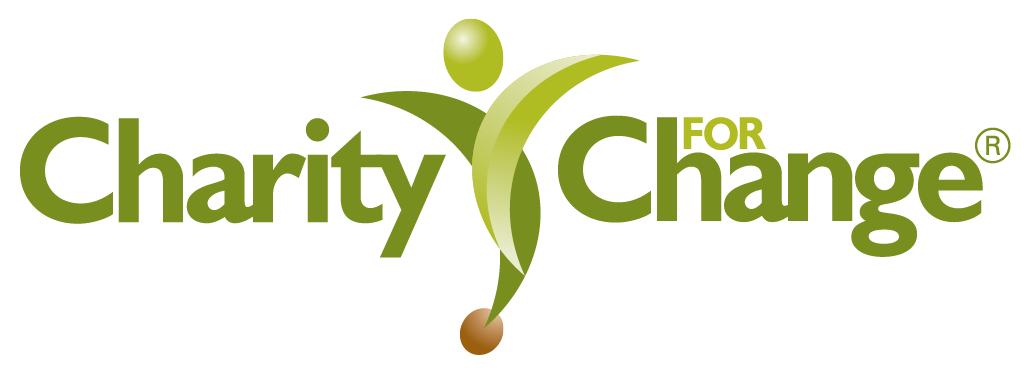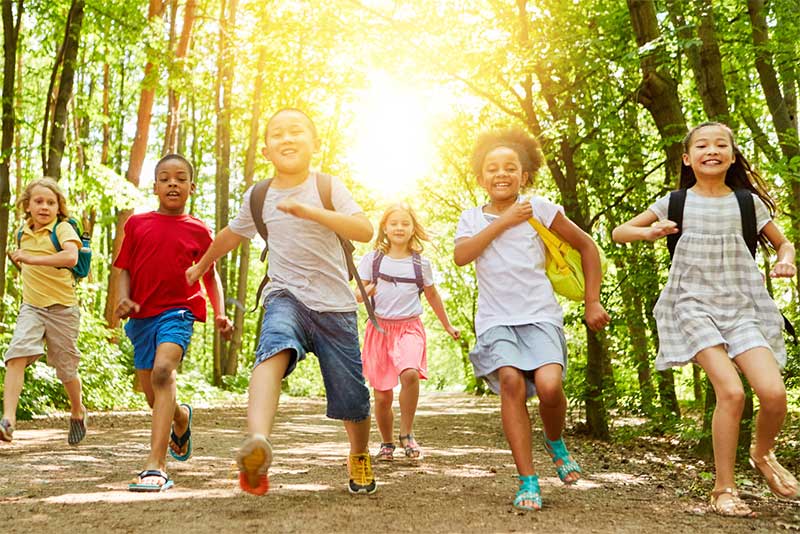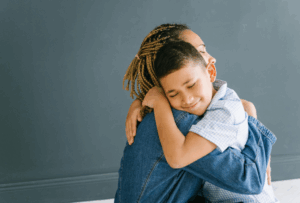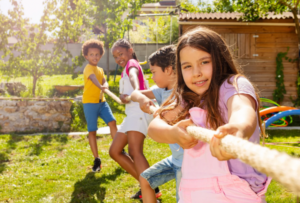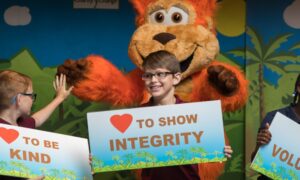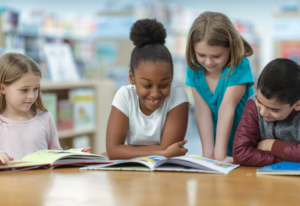By Karen Conley, President, CEO and founder of Charity for Change
We know that our friendships play an essential part in our lives. And the friendships you make in childhood can help give you a sense of belonging, build your self-esteem, and develop positive social skills. However, we also know that making new friends can sometimes be challenging. Change, such as summer vacation, can mean saying goodbye to friends. But the first day of school or starting at a new school is an opportunity to make new friends.
According to a 75-year study by Harvard, the most critical element to being happy and healthy is good relationships. It is the same for young children. Friendship provides support and encouragement, can aid academic performance, and help positive social and emotional development. Additionally, friendship allows children to practice regulating their emotions and impulses, delaying gratification, managing stress, and listening and empathizing with others. While we cannot make children friends with one another, there are things we can do as educators to promote the bonds of early friendship.
Crafting Friendships at School
Most children spend a significant amount of time in school, and teachers can do things in the classroom to help them develop their social skills.
- Encourage Student Interaction. Group projects expose children to different personalities; promote teamwork, collaboration, and cooperation; and can be the chance to meet a new friend. Giving students opportunities to mingle through class activities can help them forge new friendships. Be sure to mix it up from three- or four-person activities to pairing students as buddies for a task. And as you get to know your students, try partnering students with similar interests. Refreshing your student seating plan is also a great way to create a new environment.
- Nurture Interpersonal Skills in a Safe Space. Many instances throughout the school day can be used to promote interpersonal skills like respect, listening, compassion, sympathy, resourcefulness, and support. Additionally, setting aside classroom time to facilitate discussions on topics like friendship, hobbies, interests, and more can help students learn more about one another and new perspectives. One example is having a daily warm-up question and giving students ten minutes to discuss their answers with their neighbors.
- Support Extracurricular Activities. As you learn more about your students and their interests, consider any potential after-school activities they could join and share with their parents. This could include new skills to explore, like music or art, clubs or groups you think your student would enjoy, or a sports activity they like participating in during recess.
- Model Good Friendship Behavior. You’re there to teach, so your students are always watching and learning from you. Being kind and approachable and respecting others will help show children how to interact with others. And showing interest in them and others will help illustrate the value each person holds.
In Times of Friendship Trouble
Even a great, positive relationship will have its ups and downs. If you notice that friends in your class are in disagreement, this is an opportunity to help your students learn healthy relationship-building and conflict-resolution skills. Acting as a mediator and aiding students in conversation can help them learn how to manage interpersonal issues positively. Assisting students to have these difficult, uncomfortable conversations with people they care about can benefit them by learning how to:
- Discuss disputes when they arise and not avoid or ignore conflict.
- Handle personality differences and how to preserve friendships.
- Identify toxic behaviors and mistreatment.
- Accept responsibility for their actions and not blame others.
- Listen to their friends with intention and understand their perspective.
Attending school is more than an academic milestone. It is where children learn how to communicate and cooperate with others, develop healthy social and emotional skills, and establish supportive and encouraging friendships. Recognizing that the classroom is where lifelong friendships can get their start, there is a lot educators can do to help promote positive, lasting relationships for their students.
About the Author
Karen Conley is President, CEO and founder of Charity for Change, a non-profit social-emotional learning educational organization funded by philanthropy. For information, visit charityforchange.org.
